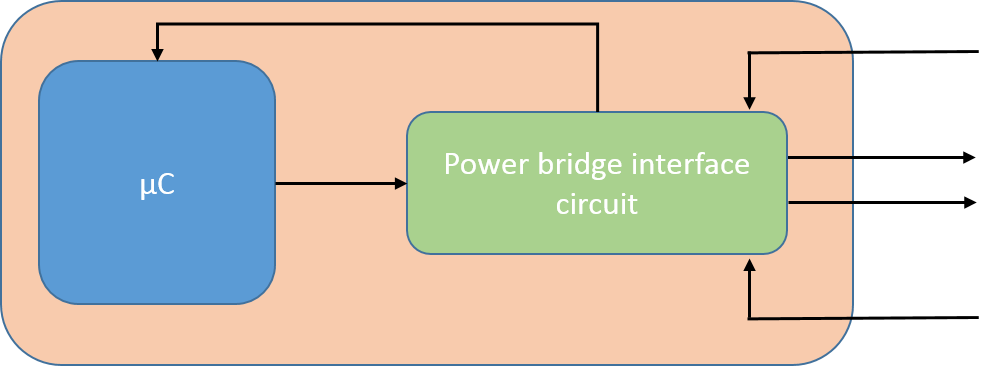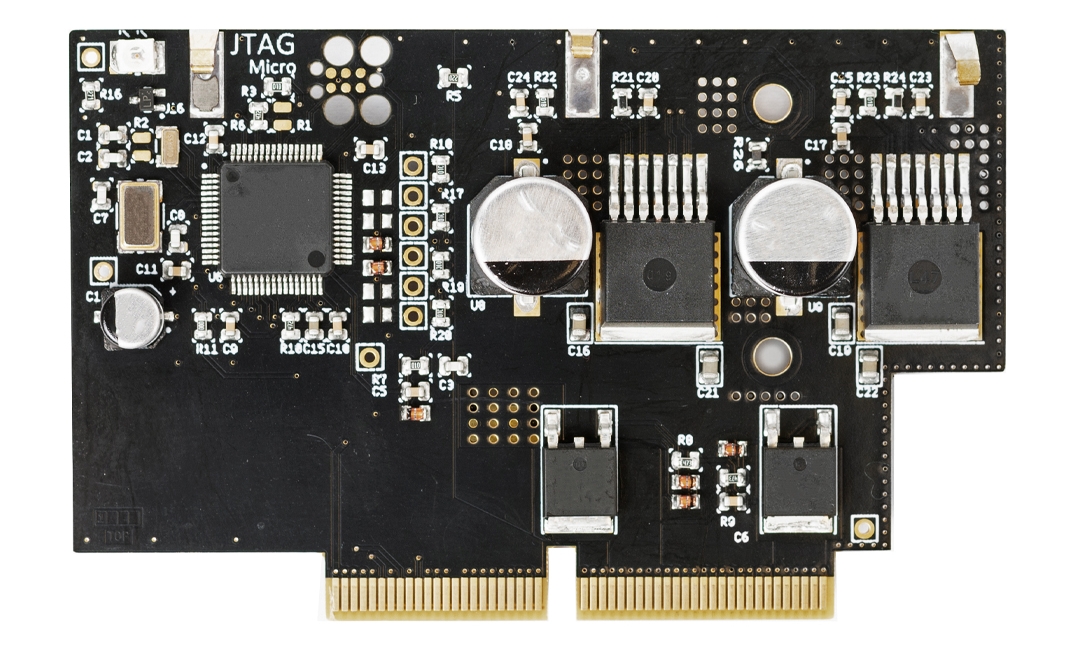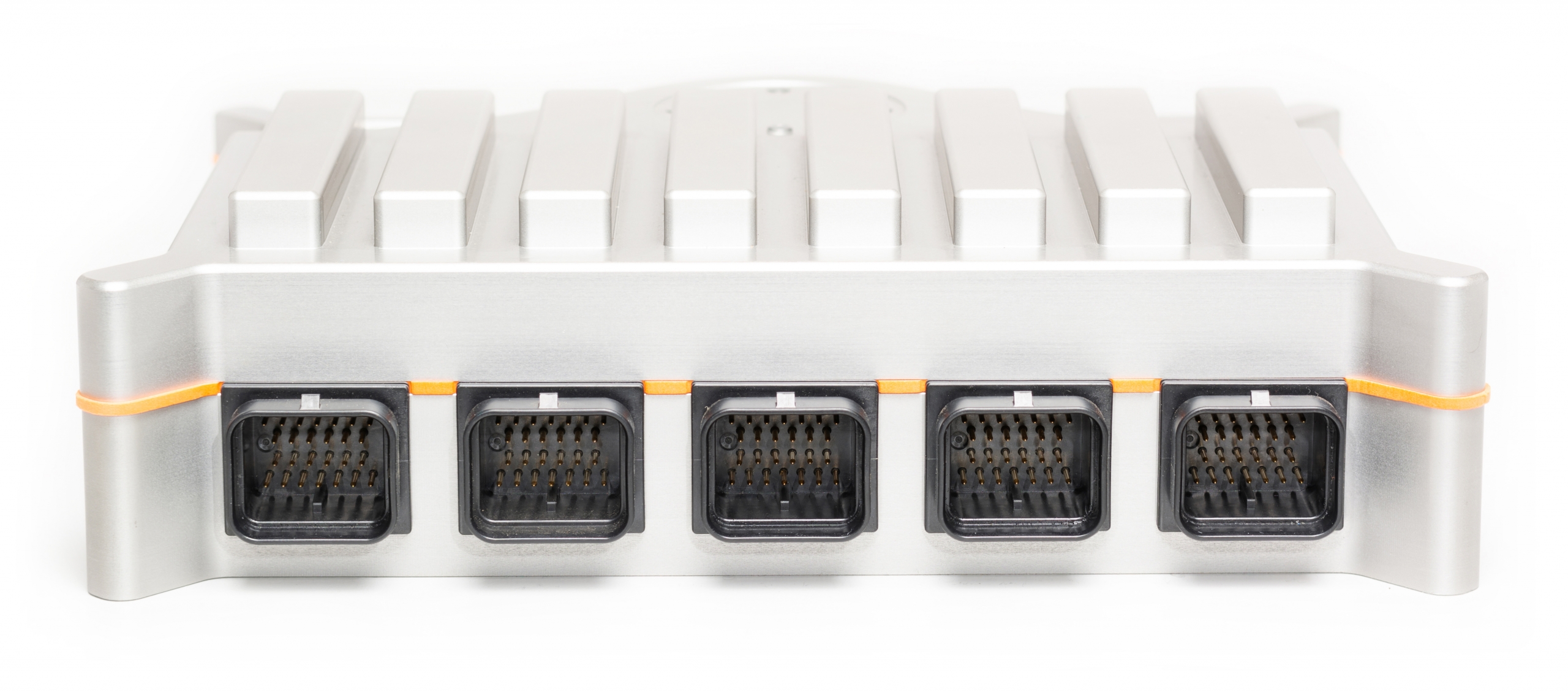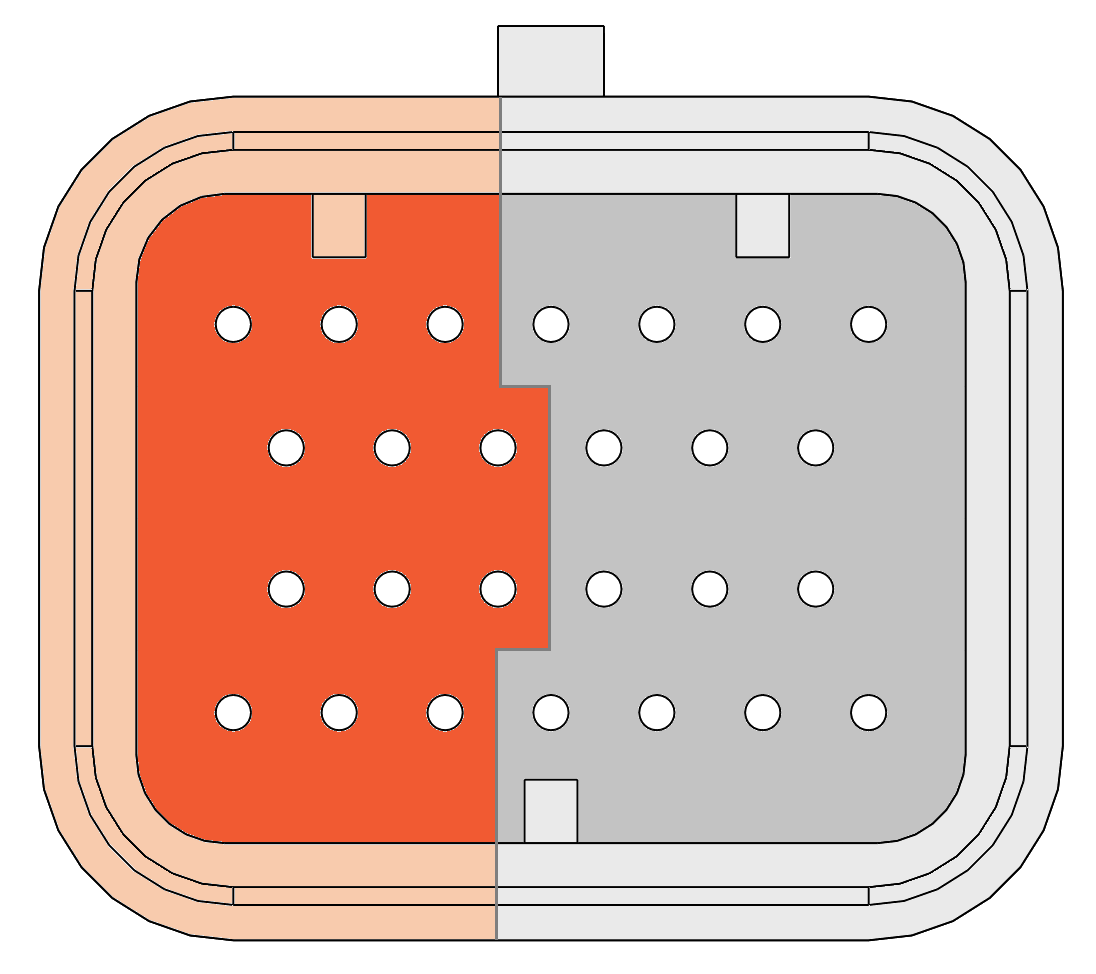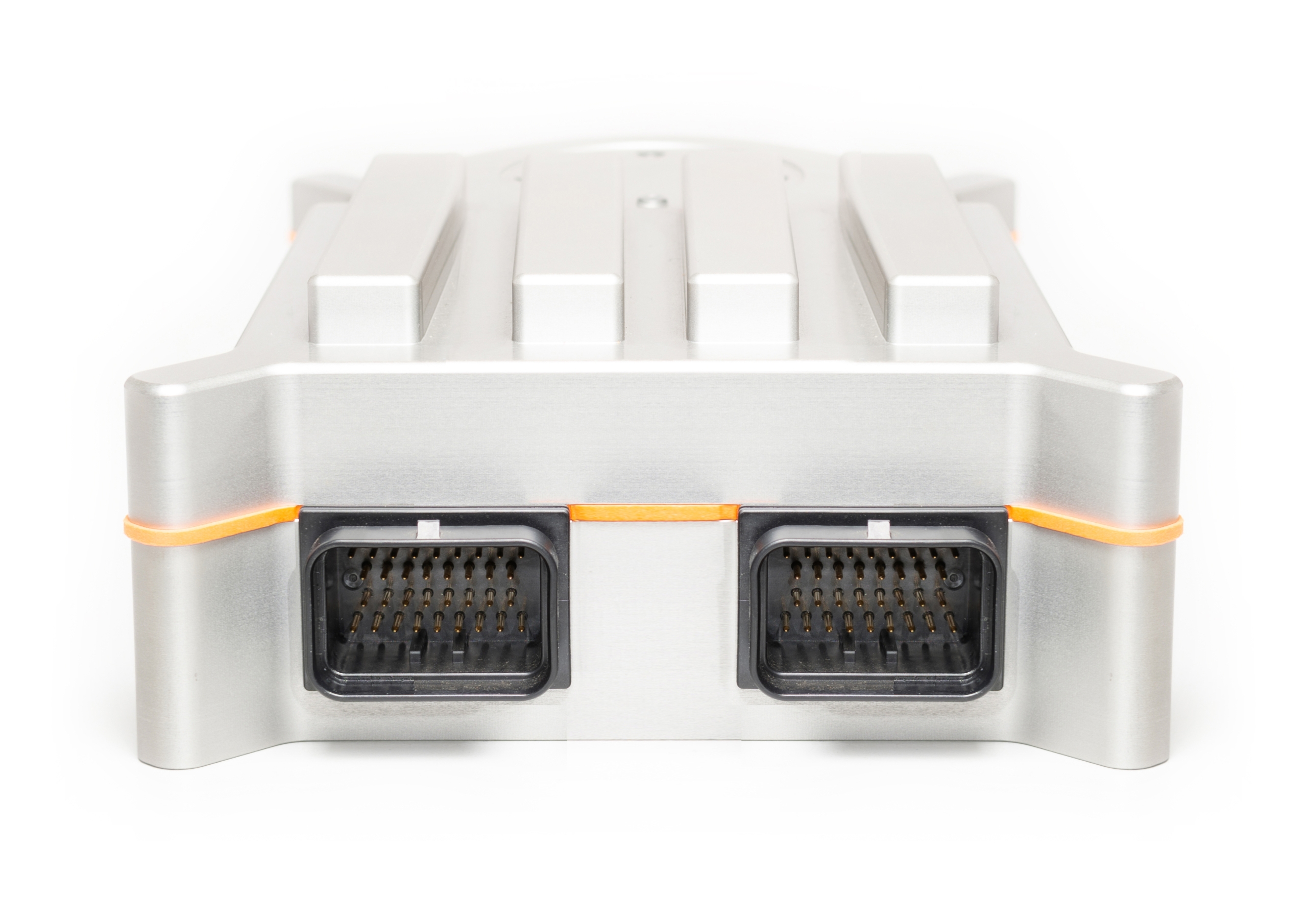2 Channel Power Bridge Module
General
The 2 channel power bridge module is a GOcontroll Moduline IV compatible expansion card to add a high power H-bridge to your modular controller. Instead of single bridge configuration, the module can also be used as 2 high power half bridges.
Schematical Representation.
Applications
Bi directional control of inductive and resistive actuators
High side or low side actuator control as switch (on-off)
High side or low side actuator control with duty cycle (0-100%)
Half bridge actuator control
Full bridge actuator control
Current controlled actuators
Features
Continuous current up to 10 A
Can be used as full bridge, 2x half bridge, high and/or low side switch (on-off and duty cycle controlled)
Current of each channel can be read out (only for high side configuration)
Each output is short circuit and over temperature protected.
Module supply is reverse polarity protected
Module power supply is load dump protected (ISO 7637)
Bad ground connection detection (earth loop protection)
External supply voltage range from 6 to 24 Volt
Technical specifications.
The technical specifications are listed in the table below.
| Min | Nom | Max | Unit | |
|---|---|---|---|---|
| Supply rail voltage (normal operation) | 6 | 24 | Volt | |
| Nominal load current individual channels | 10 | A | ||
| Peak load current individual channels | 14 | A | ||
| Nominal load current H-bridge configuration | 10 | A | ||
| Peak load current H-bridge configuration | 14 | A | ||
| Switching frequency (duty cycle selected) | 1 | 10 | kHz | |
| Duty cycle resolution | 1 | % |
* The maximum total module current consumption may not exceed 15A.
CAUTION: CONNECTORS MAY NEVER BE HOT PLUGGED! REMOVE POWER BEFORE REMOVING OR INSTALLING CONNECTORS!
Pinout Moduline II, III & IV.
The eight module expansion slots are directed to four connectors in front of the controller. Connector A,B,D and E. If a module is plugged into a specific expansion slot, one half of the corresponding connector is used to interface this module. The picture below gives an overview of the connectors with their related module expansion slots.
Connector C ( in the middle) is used for controller supply and some optional CAN bus connections.
The picture below shows the connector pinning from the Input Module. Be aware of the different pinouts when the module is plugged into even or odd module slots.
For example let’s assume an Bridge Module is plugged into expansion slot 5:
- The corresponding connector is D
- The module supply pins are: 5-7
- The module ground pins are: 24-26
- The signal output pins are: 11-13, 17-19
Pinout Moduline Mini I.
The four module expansion slots are directed to the two main connectors of the controller. Connector A and B. If a module is plugged into a specific expansion slot, one half of the corresponding connector is used to interface this module. The picture below gives an overview of the connectors with their related module expansion slots.
Connector B ( on the left in this view) is also used for controller supply, a controller enable- and reset-input and a CAN bus interface. Connector A also offers a CAN bus interface and on top of that two controller enable inputs.
The picture below shows the connector pinning from the Input Module. Be aware of the different pinouts when the module is plugged into even or odd module slots.
For example let’s assume an Intput Module is plugged into expansion slot 4:
- The corresponding connector is B
- The module supply pins are: 1-3
- The module ground pins are: 26-28
- The output signal pins are: 10-12, 18-20

Be aware to connect all the supply pins and ground pins before controlling any actuator. By connecting only one or two pins, the processor board and module are not able to distribute the amount of current that is required. The processor board and module can be permanently damaged.

